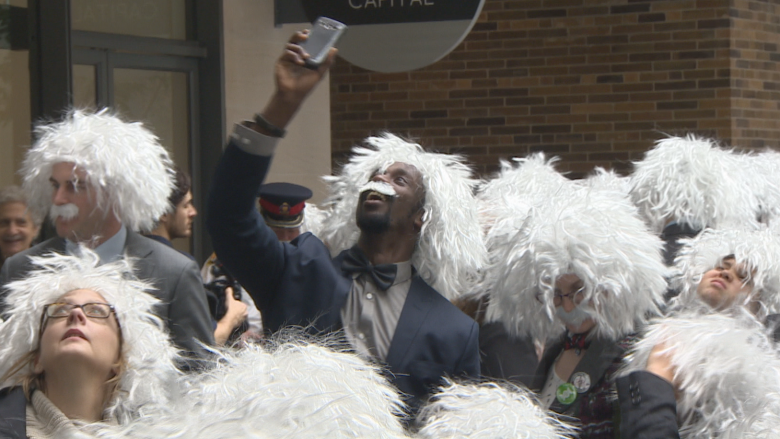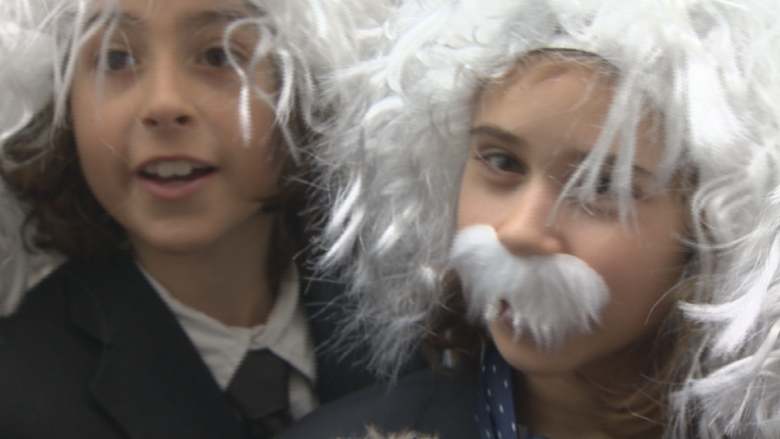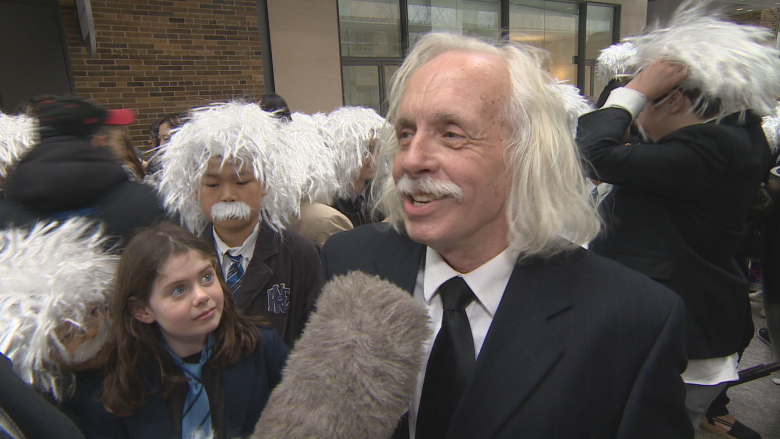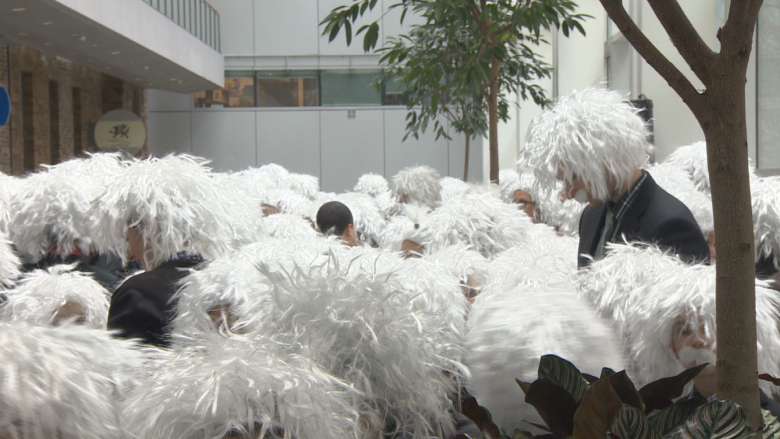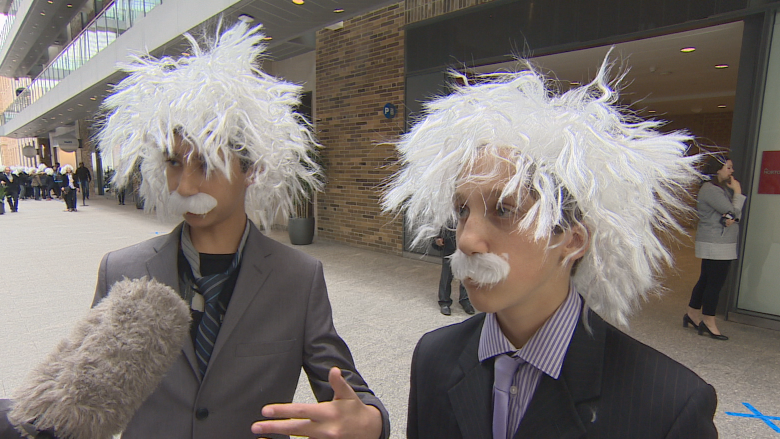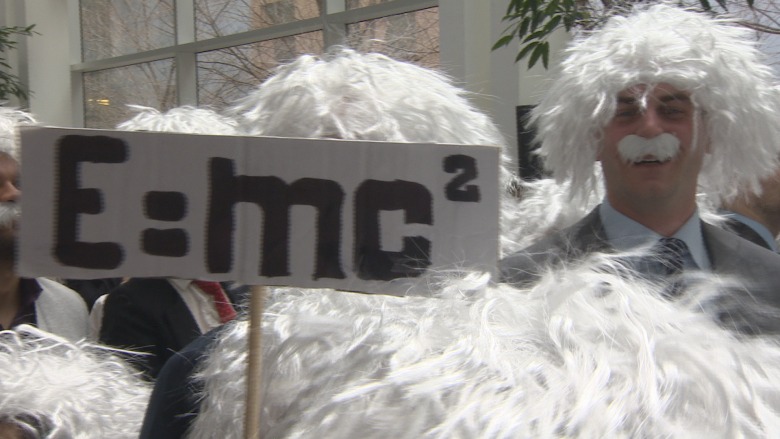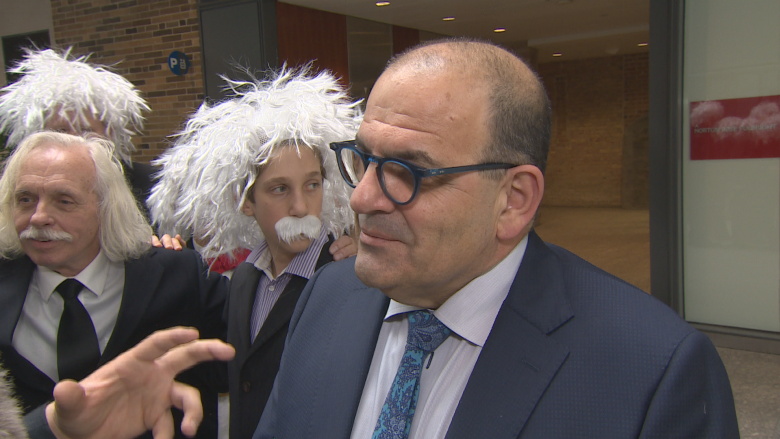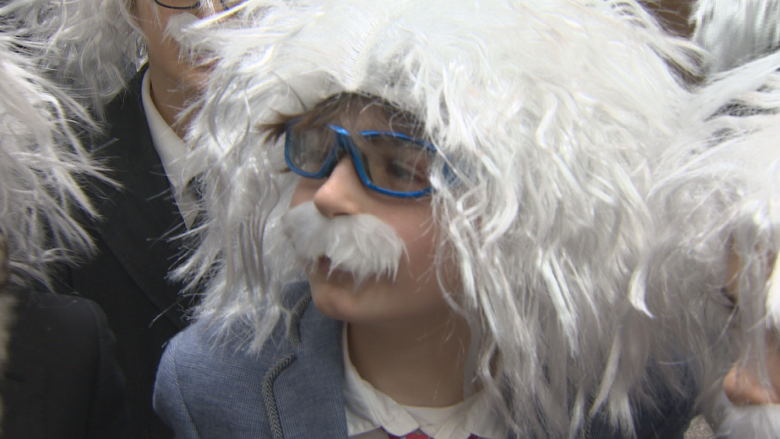World record set in Toronto for largest group dressed as Albert Einstein
Toronto was unusually brainy on Tuesday.
A group of 404 people set the Guinness World Record for the "largest gathering of people dressed as Albert Einstein"—obliterating the previous record of 99.
Participants had to follow the famous physicist's dress code: blazer, necktie ... and of course, a big white wig and moustache — all to make them look like the German-born genius who revolutionized the world of physics by developing his theories of general and special relativity. .
The record-setting event took place at the MaRS Discovery District in Toronto, and the Next Einstein initiative provided wigs and moustaches to all participants.
Rich Zagorski didn't have to don any fake hair, however. This natural Einstein look-alike travelled from New York State to take part in the world record.
"I like seeing the kids here, because the kids are the next generation that are going to be taking over after us," he said.
'We need the kids to be able to go out there and really know about history and culture and music."
Kicks off 'Next Einstein' competition
Smashing the world record wasn't just for fun — it also kicked off this year's Next Einstein competition.
The open contest looks for "ideas that make the world a better place."
The winner receives $10,000, which they can use to turn that idea into reality.
"This is a competition all about imagination and innovation and ideas," said Rami Kleinmann, president and CEO of Canadian Friends of Hebrew University (CFHU), which created the competition in 2013.
Hologram home security idea
Grade 8 students Daniel Solomon and Jonathan Sherman are submitting their idea for a system that could prevent home break-ins.
Their idea is to have a motion sensor outside a house that sets off a hologram inside, making it look like people are home.
"It will give the illusion that someone is in your house ... so the robber will think people are in the home and think, 'Oh, I can't rob this," said Solomon.
Sherman said the motion sensor will also take a picture of the potential robber, and send a notification to your mobile phone.
The CFHU created the competition in 2013, in conjunction with Hebrew University of Jerusalem.
Kleinmann called the competition "one of the largest idea crowdsourcing exercises in the world."
Previous ideas include a condom that glows when it comes in contact with a sexually transmitted infection and a genetically modified dragonfly that could reduce carbon dioxide in the atmosphere, he said.
The competition closes on April 25.

